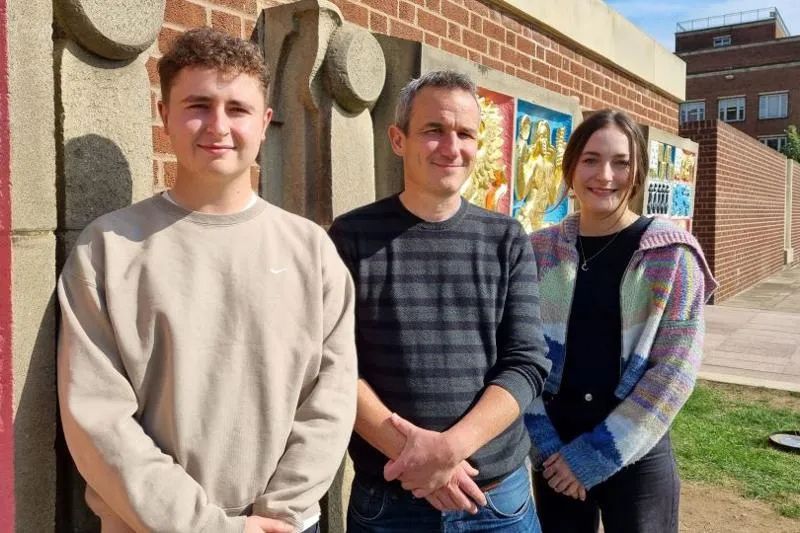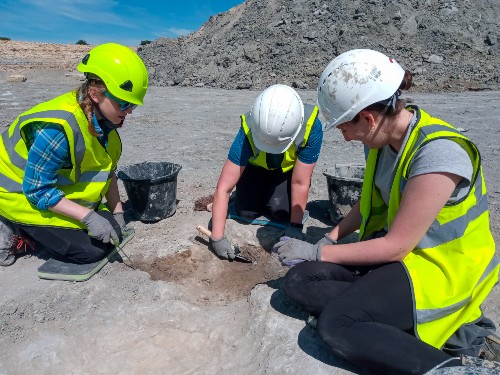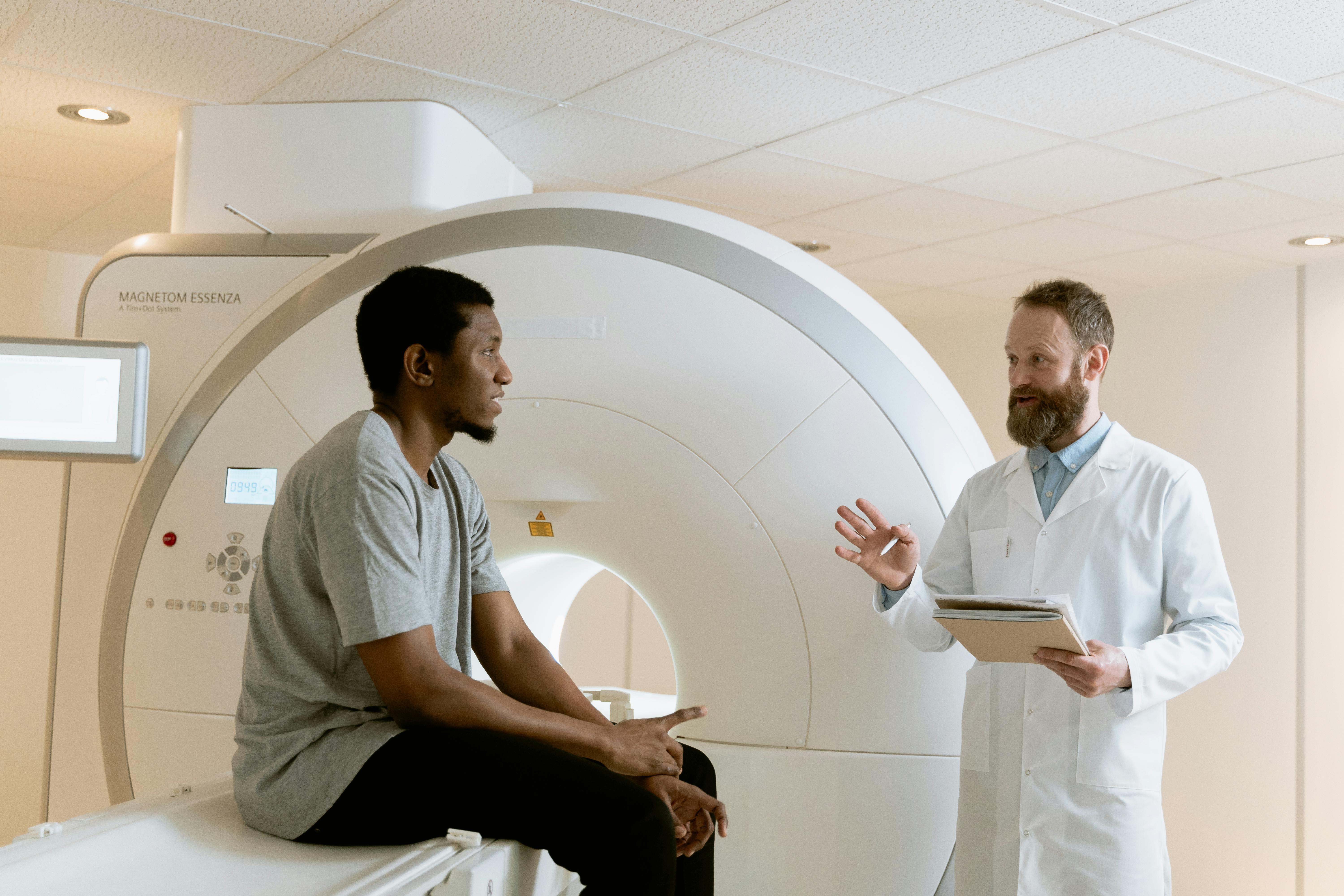Monitoring air pollution in our homes matters
 People may be exposed to unhealthy levels of airborne pollutants inside their homes, even if the outdoor air quality is good, a new study finds.
People may be exposed to unhealthy levels of airborne pollutants inside their homes, even if the outdoor air quality is good, a new study finds.
Researchers at the University used low-cost sensors and innovative techniques over a two-week period to compare particulate matter (PM) in three homes, discovering that pollution levels in each house were higher and more variable than outdoor levels. In one of the three homes studied, researchers found PM to exceed the World Health Organization (WHO) 24-hour PM2.5 limit on nine days, highlighting the importance of monitoring indoor air quality.
The research was undertaken by the inaugural McCall MacBain Clean Air Fellows at the University, with support and funding from the McCall MacBain Foundation and the Clean Air Fund.
Study co-author and Clean Air Fellow Catrin Rathbone commented: ‘Our study shows the need to monitor indoor air pollution, as people can have unhealthy air at home even if outdoor air is good. PM levels varied significantly between homes, indicating that monitoring just one location isn’t enough.’
The team suggest that going forward, their low-cost and easily scalable research could lead to more accurate pollution exposure models and drive better-informed public health policies.
You can learn more about the study findings here: Air pollution levels may be higher inside your home than outside - University of Birmingham
New footprints discovered on Britain’s ‘dinosaur highway’
 Dinosaur footprints dating back to the Middle Jurassic Period have been uncovered at a quarry in Oxfordshire by researchers at the Universities of Birmingham and Oxford.
Dinosaur footprints dating back to the Middle Jurassic Period have been uncovered at a quarry in Oxfordshire by researchers at the Universities of Birmingham and Oxford.
Hundreds of prints making up multiple trackways show the movements of the 9-metre ferocious predator Megalosaurus, along with a number of herbivorous dinosaurs up to twice that size.
The trackways, which are some 166 million years old, were first discovered at the Dewars Farm site by a quarry worker. The find led to a team of more than 100 people taking part in a week-long excavation to uncover around 200 footprints and build 3D models of the site to document it for future research.
Professor of Micropalaeontology Kirsty Edgar at the University of Birmingham, said: ‘These footprints offer an extraordinary window into the lives of dinosaurs, revealing details about their movements, interactions, and the tropical environment they inhabited.’
The excavation, which featured on BBC Two’s Digging for Britain, offered rich opportunities for student palaeontologists to take part in a dig, through funding from the Alumni Impact Fund. This covered travel and other expenses in order to support inclusive access to fieldwork.
Jacob Godfrey, who is in his fourth year of an MSci in Palaeontology and Geology, said: ‘Having the chance to develop practical excavation skills as opposed to just learning about it in the classroom through lectures and seminars greatly elevates the standard of knowledge and skills applicable to the real world, necessary for once we’ve left university and progress on to our careers.’
The Alumni Impact Fund, generously donated by alumni, supporters, and friends of the University, is used for projects that will have a positive impact on student experience. The project was also supported by the Geologists’ Association, and the School of Geography, Earth and Environmental Sciences at the University of Birmingham.
Supporting our alumni to undertake further study at the University
To mark its 125th anniversary year the University is offering 300 scholarship awards to undergraduates returning to study Masters courses.
Through the Alumni Scholarship, alumni from any year of graduation will be able to apply for a £2,000 tuition fee waiver for postgraduate (taught) courses in the 2025/6 academic year.
The scheme replaces the Postgraduate Progression Award, which was open to final year undergraduate students only, broadening opportunities for graduates to apply for financial support to advance their studies and enhance their careers.
Megan Davey (LLM Human Rights, 2024), a previous recipient of the Postgraduate Progression Award said: ‘The award was one of the driving factors for me as a student who is unable to get financial support. Being a recipient of this award made the decision to pursue a Masters even easier as I was no longer bound by the financial constraint and worry.'
Lydia Cant (MSc Environment, Development and Politics, 2024) said: 'By continuing my studies at Birmingham, I gained a discount on my postgraduate degree. I would not have been able to undertake further study without the financial aid provided.'
MRI scanning and biopsy could improve bladder cancer treatment
 Patients with a common aggressive type of bladder cancer could get correct treatment significantly quicker using MRI imaging and biopsy.
Patients with a common aggressive type of bladder cancer could get correct treatment significantly quicker using MRI imaging and biopsy.
A clinical trial led by University of Birmingham researchers has shown that a type of magnetic resonance imaging (mpMRI) is as effective as the standard surgical investigation of bladder tumours.
The time taken to receive the correct treatment was reduced by more than six weeks for patients who underwent the MRI scan before having a biopsy.
The results of the study, published in the Journal of Clinical Oncology, also showed that the MRI scan meant that around 1 in 7 patients would be able to avoid the biopsy stage of diagnosis. This means the new diagnostic pathway will not only prevent unnecessary procedures, but also save money and surgical theatre space.
Professor Rik Bryan, who led the study, said: “We know that with any cancer, and especially muscle-invasive bladder cancer, speed is of the essence when treating.
“We were delighted that the experimental diagnostic pathway that introduced MRI led to a vastly reduce time taken for patients to receive their correct treatments.”
Cutting-edge healthcare training centre to open
 Future students coming to the University of Birmingham will benefit from a new centre offering opportunities to learn in simulated environments that mirror real-world healthcare settings and scenarios.
Future students coming to the University of Birmingham will benefit from a new centre offering opportunities to learn in simulated environments that mirror real-world healthcare settings and scenarios.
The new Birmingham Centre for Anatomy, Surgical and Clinical Skills (B-CASCS) will be established on the Birmingham Health Innovation Campus, situated at the heart of a critical cluster of health excellence near the University of Birmingham’s Medical School and several major hospitals. The Centre has been granted planning permission, and the University has finalised an agreement with Bruntwood SciTech to establish 50,000 sq ft of facilities on the newly established site in the vicinity of the University’s Edgbaston campus.
Students will benefit from opportunities to advance their practical learning in simulated environments that mirror real-world healthcare settings and scenarios. Green screens, microphones, cameras and other high-end audiovisual equipment will be seamlessly integrated into mock hospital wards, consulting rooms and a surgical theatre, ensuring an authentic and engaging training experience.
The immersive and realistic approach will equip students with the comprehensive practical skills necessary for navigating complex healthcare environments. The Centre will also provide a high-fidelity environment for surgical skills training, with both cadaveric and simulated facilities.
Book review: Last Dance at the Discotheque for Deviants
 Paul David Gould’s Last Dance at the Discotheque for Deviants is a state-of-Russia novel that evokes the post-Soviet 1990s — an era that paved the way for Putin.
Paul David Gould’s Last Dance at the Discotheque for Deviants is a state-of-Russia novel that evokes the post-Soviet 1990s — an era that paved the way for Putin.
Set largely in Moscow (but with a chapter in Birmingham!), it's a suspense story unfolding around the mystery of what happened to Kostya, a young man whose death — dismissed as ‘natural causes’ by the police and medical authorities — looks suspicious to those who loved him.
As well as a love story and coming-out story, Last Dance captures the upheaval that followed the collapse of the Soviet Union. It situates the suspicion and intolerance towards gay people among other glaring inequalities — be it under communism or capitalism.
At the same time, Gould’s narrative shows Russia opening up as it shakes off its Soviet past and rushes to embrace the new freedoms already enjoyed by the West.
In an unlikely alliance, Kostya’s mother and two would-be 'boyfriends' uncover the grisly truth about what happened to Kostya, confronting them with uncomfortable personal truths too. Fast-forwarding 21 years, the novel’s epilogue acknowledges a shift in attitudes, but also the harsh turn that Russia has taken under Putin.
Paul David Gould (BA French & Russian, 1989) spent four years in the former Soviet Union where he started out in journalism. The novel is partly set in Birmingham and even contains references to Old Joe. We’re offering the chance to enter a competition to win a copy of the book.